Kael Rowan
From User Surveys to Telemetry-Driven Agents: Exploring the Potential of Personalized Productivity Solutions
Jan 17, 2024
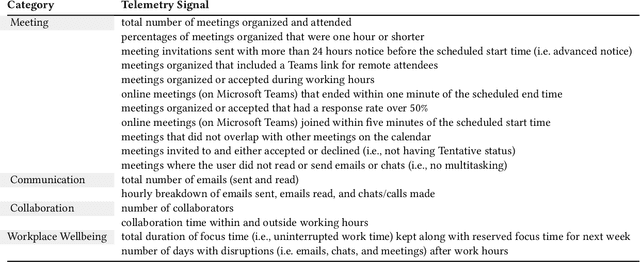

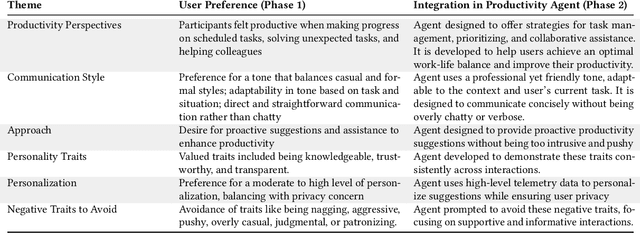
Abstract:We present a comprehensive, user-centric approach to understand preferences in AI-based productivity agents and develop personalized solutions tailored to users' needs. Utilizing a two-phase method, we first conducted a survey with 363 participants, exploring various aspects of productivity, communication style, agent approach, personality traits, personalization, and privacy. Drawing on the survey insights, we developed a GPT-4 powered personalized productivity agent that utilizes telemetry data gathered via Viva Insights from information workers to provide tailored assistance. We compared its performance with alternative productivity-assistive tools, such as dashboard and narrative, in a study involving 40 participants. Our findings highlight the importance of user-centric design, adaptability, and the balance between personalization and privacy in AI-assisted productivity tools. By building on the insights distilled from our study, we believe that our work can enable and guide future research to further enhance productivity solutions, ultimately leading to optimized efficiency and user experiences for information workers.
Affective Conversational Agents: Understanding Expectations and Personal Influences
Oct 19, 2023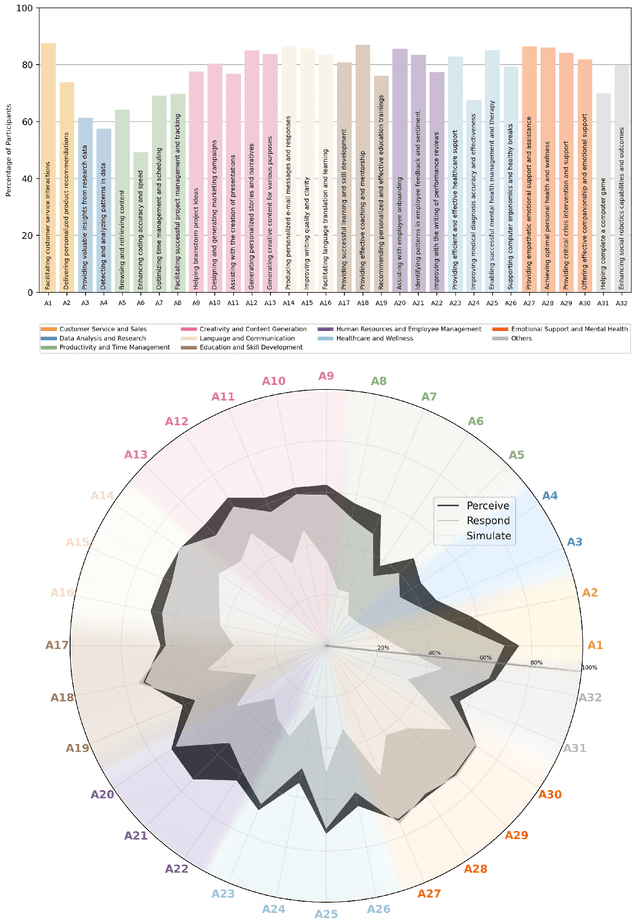
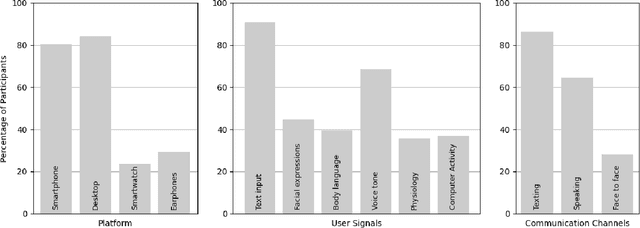
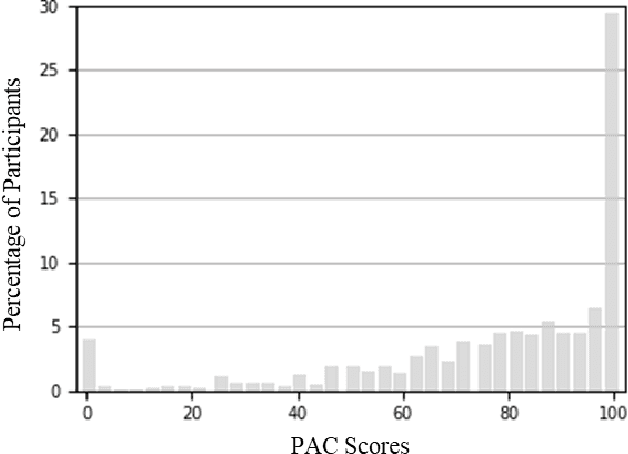

Abstract:The rise of AI conversational agents has broadened opportunities to enhance human capabilities across various domains. As these agents become more prevalent, it is crucial to investigate the impact of different affective abilities on their performance and user experience. In this study, we surveyed 745 respondents to understand the expectations and preferences regarding affective skills in various applications. Specifically, we assessed preferences concerning AI agents that can perceive, respond to, and simulate emotions across 32 distinct scenarios. Our results indicate a preference for scenarios that involve human interaction, emotional support, and creative tasks, with influences from factors such as emotional reappraisal and personality traits. Overall, the desired affective skills in AI agents depend largely on the application's context and nature, emphasizing the need for adaptability and context-awareness in the design of affective AI conversational agents.
 Add to Chrome
Add to Chrome Add to Firefox
Add to Firefox Add to Edge
Add to Edge